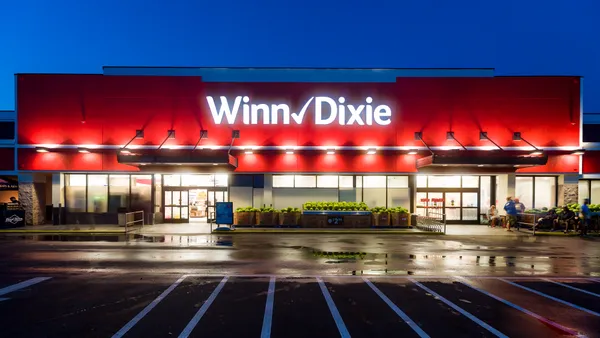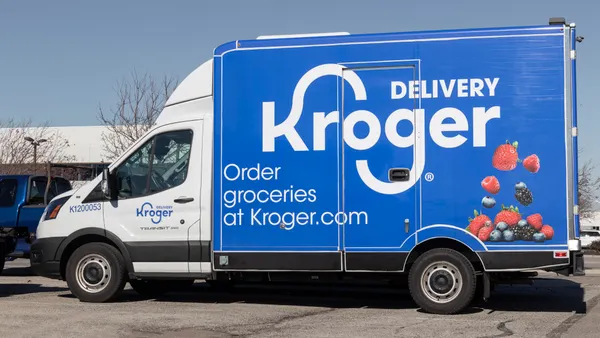Dive Brief:
- Discount grocery chain Aldi will open its first Arizona stores on Nov. 5, according to reports by Arizona news outlets KTAR and the Phoenix Business Journal.
- The stores, located in the communities of Chandler and Goodyear, Arizona, near the state capital of Phoenix, mark the brand’s continued expansion into the Southwest as it aims to grow into the third-largest grocer in the U.S. by the end of 2022. A total of at least nine Aldi stores are reportedly planned for the Phoenix metropolitan area.
- The footprints of the Aldi Arizona stores are smaller than competitors' Fry’s Food Stores and Safeway, and its stock is around 90% private label, which accounts for the grocer's heavily discounted prices.
Dive Insight:
With plans for 2,500 U.S. locations by the end of 2022, German budget grocer Aldi is rapidly making its entrance into the American Southwest. Along with its nine planned stores in the Phoenix metropolitan area, the company also purchased land for a distribution center and a regional office in Goodyear.
In July, the brand said it would have four open stores in the Phoenix area by the end of this year as part of its 2020 goal of 70 new stores open across the country. Aldi hit the 2,000-store mark in the U.S. earlier this year. Phoenix, a fast-growing market in the southwest, has witnessed a real diversification of its grocery offerings in the last year, with new Trader Joe’s, Fry’s and Costco locations.
As Aldi has demonstrated in other areas already, its entrance into the Phoenix market could prove disruptive to existing players. In just 18 months after opening its first stores in Southern California, the discount chain pushed down prices 3% in 2017, an indication that the brand has a knack for making its presence felt in new markets, even if the field is crowded.
By keeping its footprints around or under 12,000 square feet and its staff numbers small, and relying on an extensive private brand selection, Aldi has highly competitive prices, which have enabled the grocery chain to capture and keep audiences in states where it previously had no name recognition. It also has relied on the strategy of building up its presence within a relatively concentrated area to strengthen brand recognition and make a name for itself with potential customers.
Aldi's small staff numbers mean that shoppers bag their own groceries and make deposits to take shopping carts, but neither is likely to be a deterrent to many customers. The grocer's brutal efficiency and corner-cutting measures translate to lower prices, an attractive prospect as economic uncertainty and high unemployment fail to abate in many states.









